Description
Training researchers in instrumentation and accelerator physics is crucial for the timely realization of the European Strategy for Particle Physics (ESPP). To achieve this, a coordinated and well-supported effort at the European level is necessary.
This document highlights the urgent need for a strategic plan to attract, train, and retain young talent in particle accelerator and detector physics. A sustained, Europe-wide initiative, anchored at CERN, is essential for providing researchers across all CERN member and associate member states with world-class training opportunities and for building the expertise required for the next European Initiatives, including the next collider flagship project.
The ECFA Training Panel proposes a structured approach to training and requests formal recognition within the ESPPU document. The goals are :
● To establish a coordinated training strategy;
● To seek endorsement from the ESPP to facilitate the implementation of this program;
● To leverage this endorsement to seek support from CERN and other European institutions to realize the proposed initiatives;
● To get more recognition of instrumentation R&D as a scientific discipline in particle physics.
Given that accelerator physics training is more developed than instrumentation training, this document devotes more attention to the latter. However, this should not prevent the community from continuing—and even strengthening—its support for accelerator training. The structure of accelerator training could very well serve as a valuable model for the development of instrumentation training.
